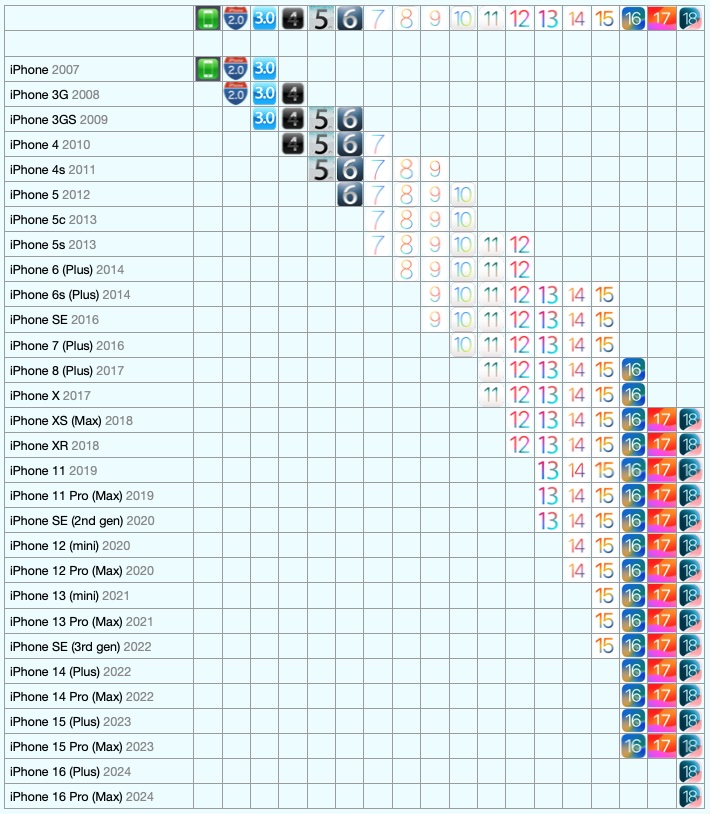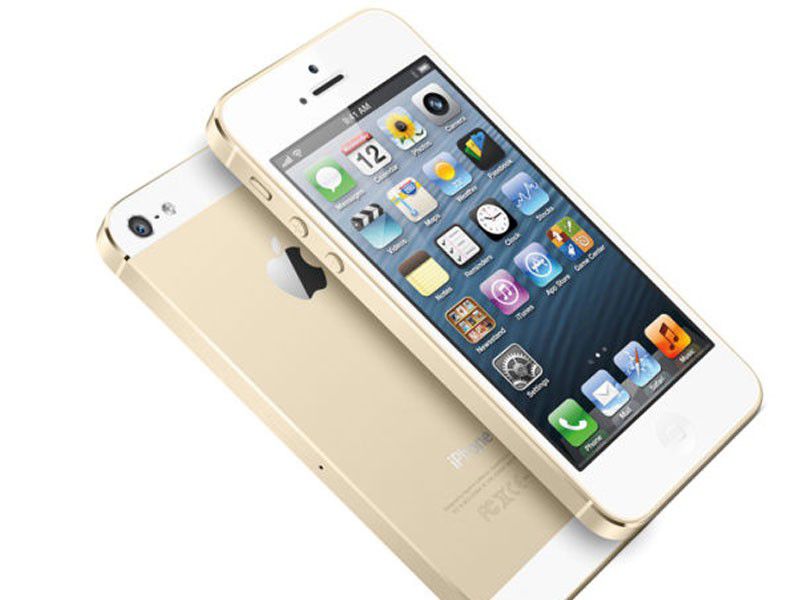
If you are thinking of buying an older generation or used iPhone, or wondering whether it’s worth updating your current handset, one important factor to consider is how long Apple will be offering support for that handset.
There are two ways in which Apple supports iPhones. One is the software – ensuring that any bugs and security flaws are addressed. The other is the hardware – providing the parts and labor to fix a problem with your phone (for a price, of course).
It’s for this reason that we dissuade people from buying particularly old iPhone handsets. The risk that a fault could occur or that you might be exposed to security risks is too high.
The good news is that Apple supports iPhones for a reasonably long time. Software support lasts for around eight years, while hardware support can be available on five to seven-year-old handsets, according to Apple’s Vintage and Obsolete categorizations, more on that below.
Read on to find out which iPhones are supported with the latest operating systems, and which are supported for servicing and repairs.
We also have a guide to how to get a broken iPhone fixed and what Apple product repairs cost and how long they take.
How long does Apple support iOS?
From time to time Apple issues important security updates for iOS. It doesn’t issue an update for every version of iOS though, which means that some iPhones will not get this fix for what could be dangerous vulnerabilities.
Apple issues security updates for the current version of iOS and, usually, the two preceding versions. With the arrival of iOS 18 on September 16, 2024 that means we can expect security updates for iOS 18, iOS 17 and iOS 16.
The chart below shows each version of iOS and the iPhones it ran on. As you can see, in recent years support for new iOS versions has stretched back for around six years, while if you include the past three versions, security support goes back a further year.

Foundry
The first iPhone, which launched in 2007, was able to run iPhone OS 3, which was supported by Apple up until 2010. The iPhone is considered obsolete by Apple.
The iPhone 3G, which launched in 2008, was able to run iOS 4.0, which was itself supported until 2011. The iPhone 3G and iPhone 3GS are considered obsolete by Apple.
The length of support increased with the launch of the iPhone 4s in 2011. That phone was able to run operating systems all the way up to iOS 9. Apple was still supporting iOS 9 in 2019 when it issued a GPS-related update that July. The iPhones 4 and 4s are considered obsolete by Apple.
The iPhone 5c runs iOS 10, which also received the GPS-related update in July 2019. The iPhones 5 and 5c are considered obsolete by Apple.
The iPhone 5s and iPhone 6 both run iOS 12, for which Apple issued a security update in January 2023. This update was issued for those few devices that don’t support iOS 15. Apple is unlikely to continue support for iOS 12. These phones are considered vintage by Apple.
iOS 15, which arrived in September 2021, supports all iPhones from iPhone 6s onwards, just as with iOS 14 and iOS 13. Both iOS 14 and 13 are considered obsolete by Apple because the same phones can run iOS 15. The iPhone 6s is already considered vintage by Apple.
iOS 16, which arrived in September 2022 runs on all iPhones from the iPhone 8 onwards – but do note that not all features are available on the older handsets.
iOS 17 arrived in September 2023 and runs on all iPhones from the iPhone XS onwards – meaning the iPhone X and iPhone 8 will be stuck with iOS 16.
iOS 18 arrives on September 16, 2024 and, like iOS 17, will run on all iPhones from the iPhone XS onwards.
What is the oldest iPhone still supported?
If the oldest version of iOS supported with security updates is iOS 16, the oldest iPhones supported by Apple will be the iPhone 8, iPhone 8 Plus and iPhone X. These phones were all introduced eight years ago in 2017.
Assuming Apple ends support for iOS 15, this will mean that the following iPhones will no longer be supported with security updates:
- iPhone 7 (Plus) 2016
- iPhone SE 2016
- iPhone 6s (Plus) 2014
That is in addition to the following iPhones:
- iPhone 6 (Plus) 2014
- iPhone 5s 2013
- iPhone 5c 2013
- iPhone 5 2012
- iPhone 4s 2011
- iPhone 4 2010
- iPhone 3GS 2009
- iPhone 3G 2008
- iPhone 2007
Note that the original SE, iPhone 8 and iPhone X are already considered ‘Vintage’ by Apple and the iPhone 6 Plus, iPhone 6s and iPhone 6s Plus are already considered ‘Obsolete’–more on that below.
We advise that if you have an iPhone 7, an original iPhone SE, or anything older than those 2016 handsets, and are concerned about security it is time to update your iPhone. This is because Apple is unlikely to issue any more security updates for that phone.
We have a list of every version of iOS where you can see the latest versions of iOS and how long Apple supports iOS for.

IDG
When does Apple stop supporting iPhones?
In terms of software that’s not a bad showing, but if your iPhone has a fault will Apple be able to provide the parts to fix it with?
Apple will support iPhones (and all devices it makes) for seven years from the last time it sold that particular model. So as long as your iPhone was still being sold by Apple up to seven years ago the company will still service it – in other words: help you fix it (for a price).
This is where Apple list of obsolete and vintage products comes in.
Apple states on its website here that “Owners of iPhone, iPad, iPod or Mac products may obtain a service and parts from Apple or Apple service providers for five years after the product is no longer sold.”
The following iPhones are considered Obsolete, which means sales were discontinued more than seven years ago and Apple has now discontinued all hardware servicing.
- iPhone
- iPhone 3G
- iPhone 3GS
- iPhone 4 (certain models are now obsolete)
- iPhone 4s
- iPhone 5c (discontinued September 2013, obsolete in 2021)
- iPhone 5S (discontinued in 2016, vintage in 2021, obsolete in 2024)
- iPhone 6 Plus (discontinued in 2016, vintage in 2021, obsolete in 2024)
And the iPhones below are listed as Vintage, which means they have not been sold for more than five years (but less than seven years). Apple will still service these products as long as it has the required parts.
- iPhone 4 8GB (discontinued in 2013, but sold in India until February 2014, likely to be obsolete very soon)
- iPhone 5 (discontinued September 2013, likely to become obsolete soon)
- iPhone 6 (discontinued in 2016, vintage in 2021)
- iPhone 6s (discontinued in 2016, vintage in 2022)
- iPhone 6s Plus (discontinued in 2018, vintage in 2022)
- iPhone SE, 2016 (discontinued in 2018, vintage in 2023)
- iPhone 8 (discontinued in 2020, vintage in 2024)
- iPhone 8 Plus (discontinued in 2020, vintage in 2024)
- iPhone X (discontinued in 2018, vintage in 2024)
All iPhones that followed those handsets should be supported by Apple.
You may also be interested to learn how long Apple supports Macs for and how long Apple supports iPads for.
Is your iPhone slipping into obscurity? Find a great deal on a new iPhone here or check the best prices below and take a look at our round-up to choose the Best iPhone for you.